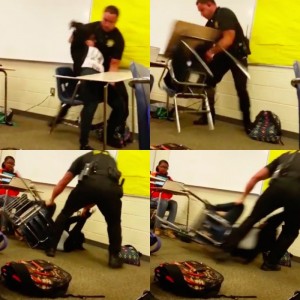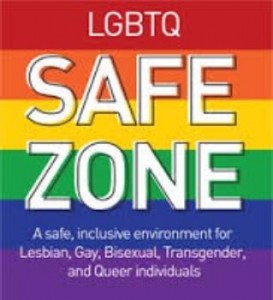America's Shameful Lesson and How to Learn from It
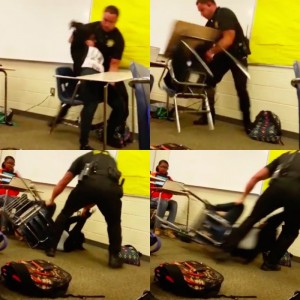
Last week, thousands of people watched in horror as School Resource Officer Ben Fields violently threw Spring Valley High School student Shakara from her desk before arresting her. As a former public school teacher, I was horrified by what I saw, but I was even more ashamed. Ashamed that we have a public school system that blurs the line between disciplinary action and assault; where a School Resource Officer, hired to protect students, ends up terrifying them; where we kick out the very students who need our help and support the most.
Make no mistake: there were a few times when I had to ask students to leave my classroom. Usually, these were moments when students posed an immediate danger to the physical or emotional wellbeing of their classmates. Yet regardless of how I felt about the individual student at that time, I had to remind myself: they are a child. Their actions, however negative, mirrored the negativity around them. Instead of punishment, what they needed was more support.
Kicking students out of the classroom is the last thing we want to do. A 2002 study showed that a single suspension or expulsion doubles the risk that a student will repeat a grade, which in turn increases the likelihood that they will drop out of school. A 2014 study of students in Texas also found that a single suspension for a fight that did not include a weapon almost tripled a student’s likelihood of becoming involved with the juvenile justice system in the following year. Just as tragic is who we are kicking out of classrooms: students of color, students with disabilities, and students with emotional disturbances.
The message that this unfair system sends to students is loud and clear: we don’t care about you; if you need something that teachers can’t provide…. school just isn’t for you. And we’re sending this message to over half of our student population. As a result, more and more students are feeling disconnected from school—a feeling that, ironically, is more strongly associated with poor academic outcomes that misconduct is.
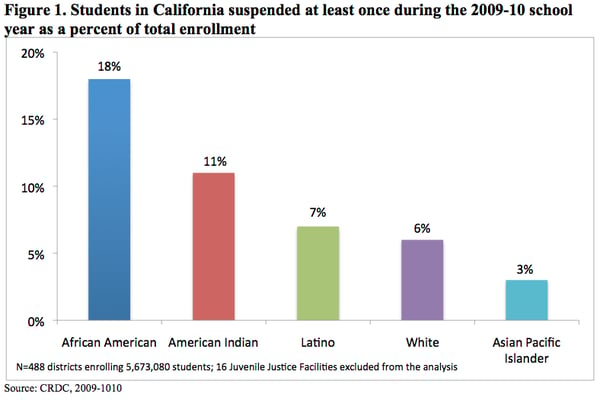 Students in California suspended at least once during the 2009-10 school year as a percent of total enrollment. A study in Texas found that 6 out of 10 public school students will be suspended or expelled from school between 7th and 12th grade.
Students in California suspended at least once during the 2009-10 school year as a percent of total enrollment. A study in Texas found that 6 out of 10 public school students will be suspended or expelled from school between 7th and 12th grade.
So what do we do? How can we ensure that we create school environments where all students, regardless of what they are struggling with, feel unconditionally loved and supported? Where students can challenge authority, try new things, and make mistakes without fearing for their safety? Where teachers feel equipped to give scholars the individualized care that they need?
Let’s start by pausing. When I was teaching, that meant pausing and remembering that Melissa throws temper tantrums because she doesn’t know when she’ll see her dad again, and Nelson breaks pencils during exams because he can’t read and is embarrassed when he’s forced to take standardized tests. It meant remembering that seven hours of school plus afternoon tutoring would be a lot to handle for a college student, much less an eight-year-old. And sometimes, it meant pausing instruction and asking for help from a social worker or counselor who could take the time to better assess a students’ emotional or psychological needs.
Now that I’m in medical school, I pause and remind myself that when Mr. Williams yells at me, it’s because he is in a lot of pain and Ibuprofen just isn’t cutting it. I pause, take a deep breath, and remind myself that when Sra. Hernandez forgets to take her medications, it’s not because she wants to spite me, but because she has moved three times in the past month, dropping pill bottles and memories along the way.
In kindergarten, we are taught to assume the best in others and “treat others the way we want to be treated”. Now it’s time to apply the golden rule to our educational policies. Instead of treating our students like violent criminals, we should start treating them like our own children. Instead of forcing teachers to kick students out of classrooms for minor disciplinary issues, let’s support them with teaching assistants, social workers, and counselors who can come into classrooms to meet the needs of all students.
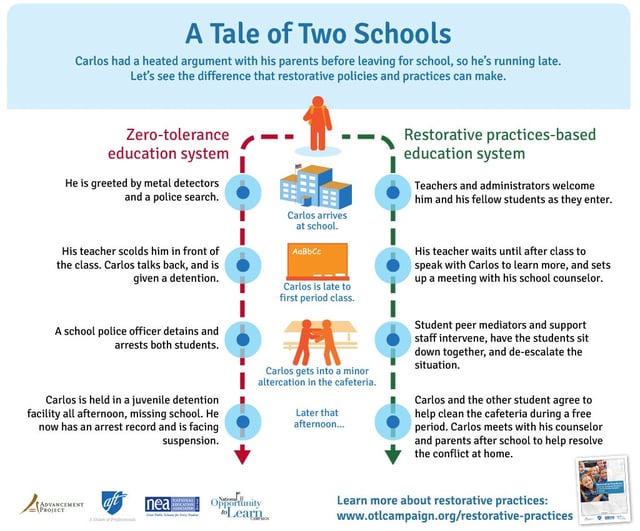 Using restorative practices instead of a zero-tolerance policy can dramatically reduce suspensions and expulsions.
Using restorative practices instead of a zero-tolerance policy can dramatically reduce suspensions and expulsions.
So what does this have to do with us as Point Scholars? Everything.
As a Point Scholar, I strive to create spaces in medicine and education where marginalized communities are heard, respected, and involved in decision-making processes. Many LGBT individuals – particularly LGBT people of color – have been silenced, ignored, and disproportionately subjected to systemic injustices throughout their lives. Improving medical care and education for our community means changing that paradigm. We must cultivate a space where disagreement and criticism are invited and valued; where we listen to one another and speak up without fear of retaliation. These practices not only make life better for marginalized populations, but also make life better for all of us.
When we talk about reforming school disciplinary policies, we’re not doing it for someone else. We’re doing it for ourselves—as LGBT scholars who benefit from safe spaces in education, as concerned citizens who want to challenge existing systems of oppression, and as human beings who deserve to be treated with dignity and respect. We need to move beyond “Safe Zones” in designated areas and towards making our entire educational system safe for everyone.
This blog post was written by Walter Decker Point Scholar Tara Benesch
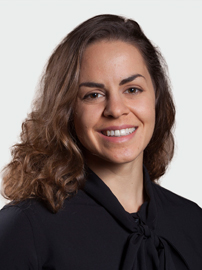 Tara Benesch believes that creative, interdisciplinary partnerships are essential to solving major health care challenges. As a queer, multiracial teenager, Tara battled anorexia nervosa and clinical depression, and witnessed the mental health disparities that disproportionately affect minority communities. These experiences led her to study schizophrenia and earn a B.A. in psychology from Washington University in St. Louis (WUSTL). As an Annika Rodriguez Scholar at WUSTL, Tara volunteered with the Latino Empowerment Team to provide college application support to disadvantaged students. Subsequently, she taught in bilingual classrooms for four years with Teach for America, where she organized panels for LGBTQ educators, and support groups and health seminars for parents.
Tara Benesch believes that creative, interdisciplinary partnerships are essential to solving major health care challenges. As a queer, multiracial teenager, Tara battled anorexia nervosa and clinical depression, and witnessed the mental health disparities that disproportionately affect minority communities. These experiences led her to study schizophrenia and earn a B.A. in psychology from Washington University in St. Louis (WUSTL). As an Annika Rodriguez Scholar at WUSTL, Tara volunteered with the Latino Empowerment Team to provide college application support to disadvantaged students. Subsequently, she taught in bilingual classrooms for four years with Teach for America, where she organized panels for LGBTQ educators, and support groups and health seminars for parents.
Read more about Tara here.
Related Posts
September 10, 2018, teampoint

Upstander: The app helping teachers make a difference
Happy Back to School season, everyone! I’m going into 19th grade this year, but each September, I...
January 14, 2020, teampoint
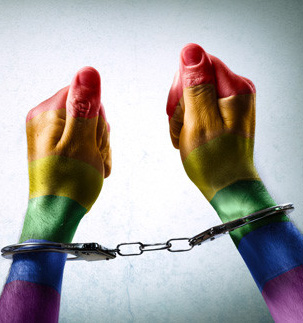
Creating Safe Spaces for the Incarcerated LGBTQ Community
I just completed my first semester of law school and yes, Elle Woods, it was hard. Prior to law...
November 02, 2023, Point Foundation - The National LGBTQ Scholarship Fund

The Impact of Anti-LGBTQ Legislation in Higher Ed
"Recent legislation just seeks to divide us further. It hopes to prevent so much progress that has...
